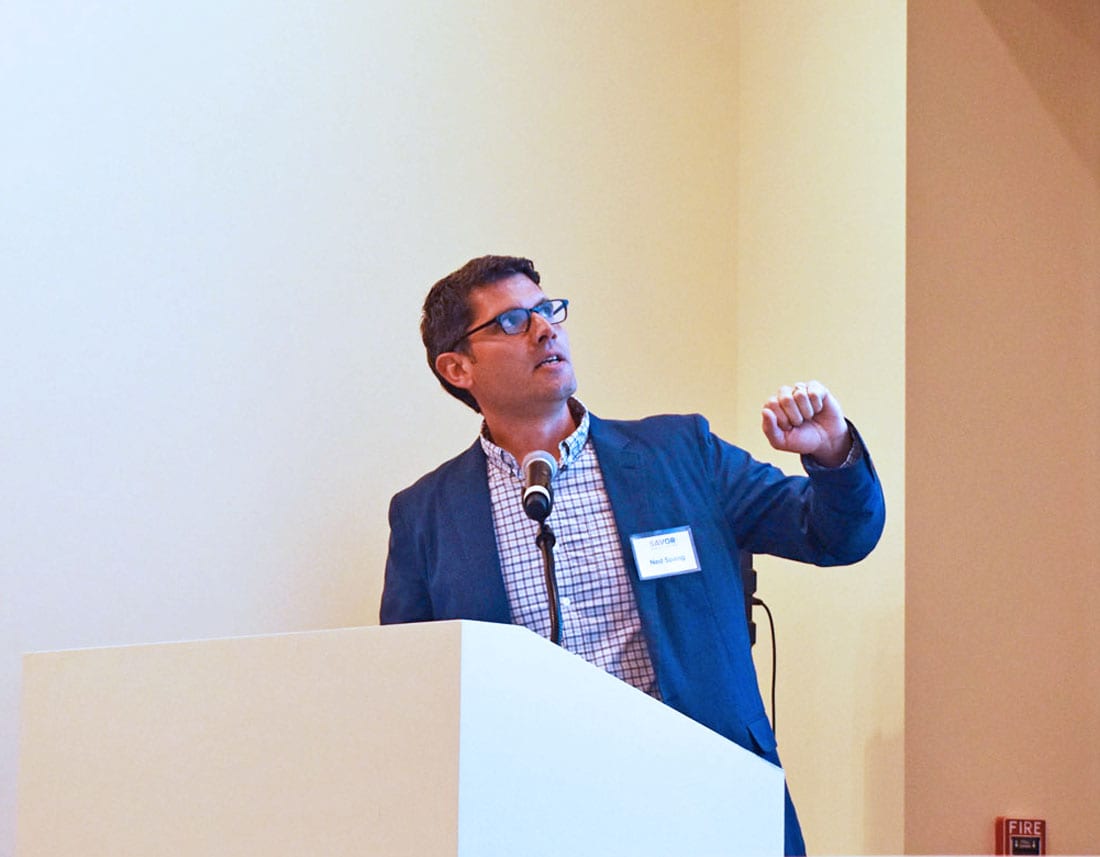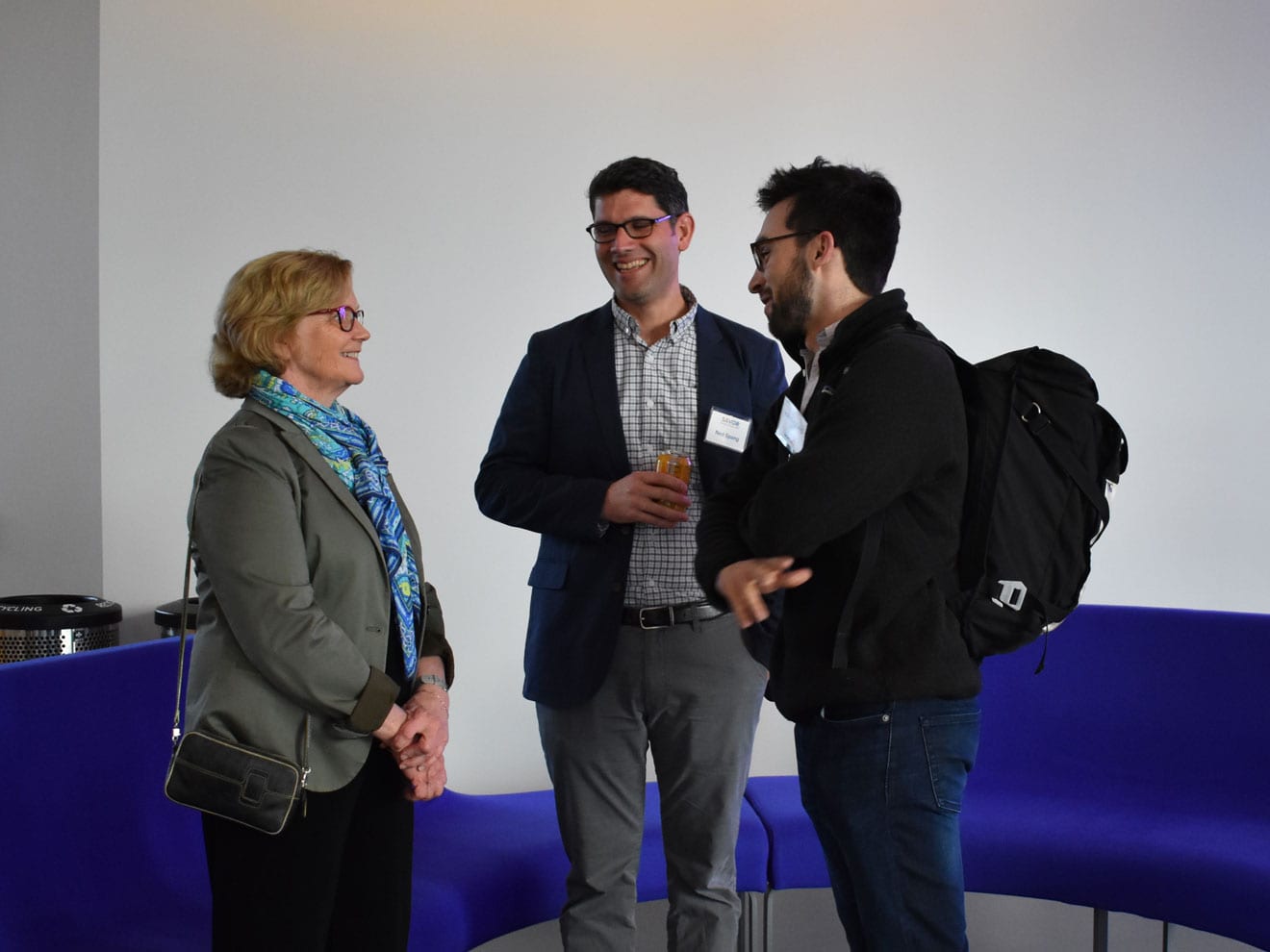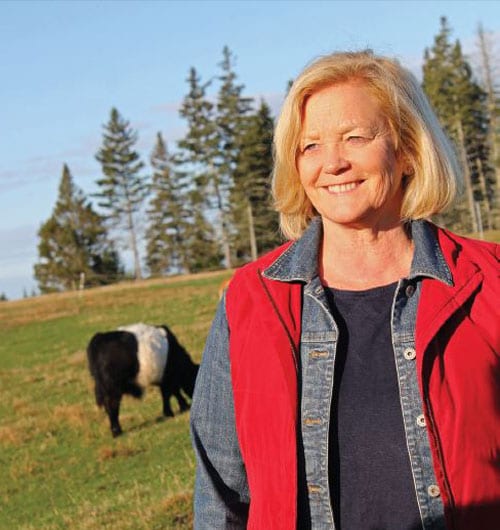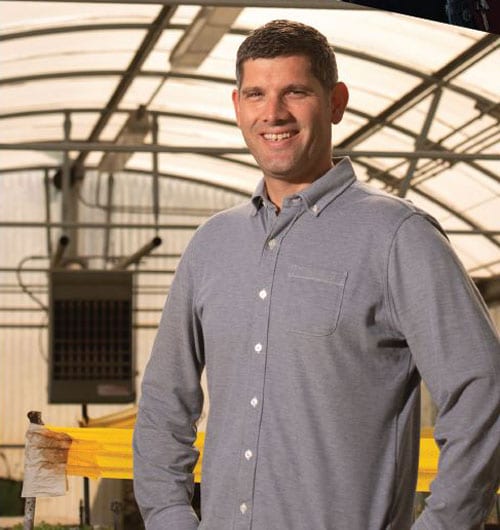New Lecture Series on Food and Wine Kicks Off with a Focus on Food Waste
Earlier this month, the UC Davis Library and the Robert Mondavi Institute for Food and Wine launched a new lecture series, Savor: Lectures on Food and Wine, with an evening focused on food loss and waste.
Congresswoman Chellie Pingree (D-Maine), a national leader on food policy, and UC Davis Food Science and Technology Assistant Professor Ned Spang, the founding faculty member of the UC Davis Food Loss and Waste Collaborative, discussed innovations in research and policy developments to address this important topic at the intersection of food, agriculture and sustainability.
How much food is lost or wasted?
One-third of all food worldwide is lost or wasted, according to the UN’s Food and Agricultural Organization, resulting in economic losses over $1 trillion and environmental costs of almost $700 billion each year. To put the quantity of wasted food into perspective another way: The cropland required to produce the amount of food that is grown, but never eaten, is equivalent to the size of China.
In addition to the large economic and environmental costs, there are also social costs to consider. As Congresswoman Pingree noted in her remarks:
We have so many people who are food insecure in this country. Figuring out how to get that food into hands of people who need it is one of the most important reasons to do something about [food waste].
—Congresswoman Chellie Pingree
Where does it all go?

Food waste doesn’t stop at the garbage can. Leftover food ends up in landfills, where it emits harmful greenhouse gases as it decomposes.
Preventing food from being dumped into landfills is a priority. The first step is to try and stop food from falling out of the supply chain. If we can recapture some of this edible food and use it as donations or reformulate it as a new product, that’s a good first step.
—UC Davis Food Science and Technology Assistant Professor Ned Spang
Spang also discussed several other ways to keep food from falling out of the supply chain, including using leftover food for animal feed, compost, anaerobic digestion to produce energy or fertilizer, and biochemical extraction, which extracts useful compounds from waste.
UC Davis research
Spang’s current research includes estimating and valuing the water and energy savings achieved by reducing food waste, and studying the potential for community-scale energy production from food waste using containerized anaerobic digestion systems.
Other UC Davis researchers are studying biochemical extraction — including creative uses for the byproducts of winemaking at the Robert Mondavi Institute. For example, a variety of compounds can be extracted from grape pomace and seeds, such as anthocyanin, which can be used as a nutritional supplement or a dye for textiles.
What’s next?
The United Nations’ sustainable development goal 12.3 is to reduce food loss and waste by 50 percent by 2030. In effort to help the U.S. reach this goal, Pingree has helped launch several initiatives. In 2017, she introduced the Food Recovery Act, a comprehensive bill that aims to raise awareness about food waste and reduce food waste in stores and restaurants, schools and institutions, on farms and in American homes. Key points from the bill discussed in the lecture included encouraging schools to purchase “ugly” fruits and vegetables, giving farmers credit for composting and standardizing date labeling.

Pingree, who was recently named Vice Chair of the House Appropriations Subcommittee on Interior, Environment and Related Agencies in addition to regaining her seat on the House Committee on Agriculture, is looking ahead.
I feel really hopeful about the opportunities in front of us. It will be a great time to educate the public [about food waste], have discussions about it and move forward with legislation. I am grateful for institutions like UC Davis who bring people together of all disciplines because we are going to need so much research and support to move forward with this.
—Congresswoman Chellie Pingree
About the speakers

Congresswoman Chellie Pingree (D-ME) is a national leader on food policy, including issues involving local food, food waste and organic agriculture. She serves on the House Agriculture Appropriations Subcommittee, which oversees federal funding for the U.S. Department of Agriculture and the Food and Drug Administration. On February 1, 2019, she was also named Vice Chair of the House Appropriations Subcommittee on Interior, Environment and Related Agencies. Before becoming involved in politics, Pingree’s first job was running a small farm with her husband and selling produce locally. She served in the Maine State Senate for eight years, including as Senate Majority Leader, before being term-limited. She has represented Maine’s 1st Congressional District since 2008.

Assistant Professor Ned Spang researches the connections between food, energy and water systems, with an emphasis on identifying opportunities to deliver and use these critical resources more efficiently. He is also the founding faculty member of the UC Davis Food Loss and Waste Collaborative, which is made up of over 60 faculty members, students and staff from more than 15 departments and research centers on campus.
About Savor: Lectures in Food and Wine
Savor is a new lectures series that hosts thought leaders, entrepreneurs, policy makers and scientific experts for evenings of illuminating discussion on some of the biggest topics in food and wine being studied at UC Davis today. The Robert Mondavi Institute and UC Davis Library have embarked on this partnership to advance our shared commitment to supporting scholarship about food and wine, at UC Davis and beyond.
Subscribe to the Savor mailing list here to be among the first to know about future events.